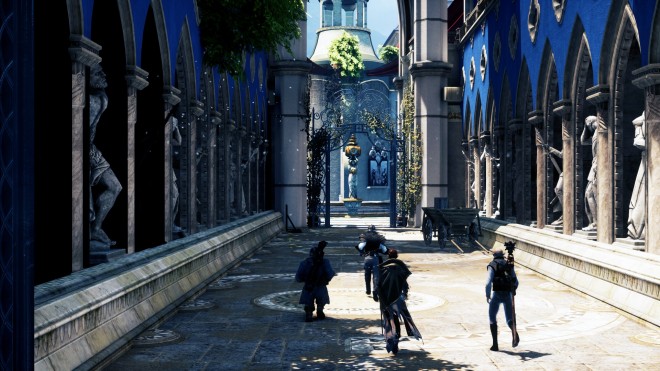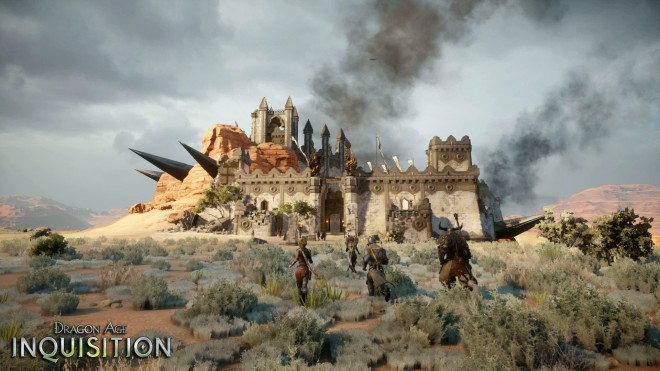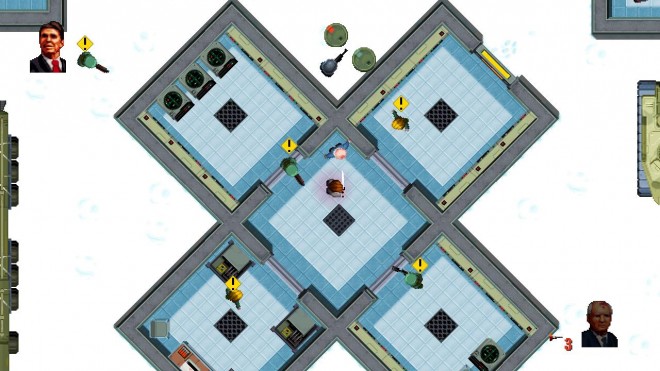One day, may years ago, I set out to buy a new book. I was (and still continue to be) knee-deep in a fantasy fiction obsession, and even though I was thoroughly enjoying the likes of David Eddings and Terry Brooks, I thought that I would try something a little different; something a bit more in the realms of science fiction perhaps. In the end, I settled on Matter by Iain M. Banks, and after briefly skimming the synopsis and first couple of pages I decided, in my infinite seventeen-year-old wisdom, that it would be an easy book to dive right into.
Around the twenty page mark, I realised that I might have been wrong, and to cut a long story short, Matter was promptly shelved for seven years thereafter.
Knowing what I know now, of course it was a mistake. Iain M. Banks is renowned for forcing an excruciating amount of information down his reader’s throats, fleshing out this entire universe that he’s created down to the minutest detail. On top of that, Matter was by no means the first novel set in Banks’ expansive and outlandish imagination, and so it was so heavily steeped in lore, history and ongoing politics (the final twenty pages of the book are made up purely of appendices) that it’s no wonder my tiny teenage brain went into meltdown. Needless to say, I’ve since learned my lesson, and if I’m buying a new book, I tend to treat unfamiliar titles with a certain degree of caution.
I tell you all this only because it was with the same trepidation that I first approached Dragon Age: Inquisition.

Releasing in November of 2014 and developed by Bioware, Dragon Age Inquisition was the third game in the DA series, not including the numerous DLC and expansion packs. I’ll go right ahead and say that I’d experienced none of Inquisition’s predecessors, but I was already well aware that Inquisition was likely to come with a fair bit of baggage.
Regardless, I gave it a shot, and was thrilled to discover that it’s actually very accessible for new players. Of course, that’s not to suggest that it’s not brimming with back stories and history, because it most certainly is. What it doesn’t do, however, is base the plot entirely around events that transpired during the previous games. Sure, they’re involved, but the references are never so obscure that they could alienate newcomers to the series. Instead, Bioware has scattered pieces of information regarding the universe across the whole game, for the player to discover of their own volition. While these can occasionally be quite heavy handed and excessive in detail, there’s absolutely nothing forcing you to sit and read them. Quite honestly, I’m surprised that it’s not more in your face, especially given the scale of the world that they’ve created – hell, if I’d put that much time in, I know I’d want to show off.

And what a world it is; featuring a number of different locations, each is not only unique, but also startlingly large. Bioware have clearly gone to great lengths to make sure each locale is diverse, from the landscape to the fauna and flora, but they have also made sure that there are an abundance of reasons to fully explore each area. With only a few exceptions, there is very little unused space, as the quests will see you venturing to every possible nook and cranny - and trust me; quests are something that Dragon Age is definitely not short off.
The plot sees your hero taking on the mantle of the Inquisitor in order to investigate the appearance of demon-spawning rifts across the land of Thedas. In order to do this, you’ll need to grow your Inquisition from a rag tag group of soldiers into a sprawling force with serious political and military clout. While the main quests themselves are great fun, and filled with excellent set pieces, it was the side quests and Inquisition development elements that kept me glued to the game for upwards of one hundred hours. While at your base, you have the option to send the various branches of the Inquisition out into the world, be it for research, political reasons or mining resources. However, some of these operations, such as scouting new areas, require power. How do you acquire power? By good old fashioned questing, of course.

While your team is out in the wilds, it’s familiar RPG territory as you batter anything that looks at you the wrong way, and then mercilessly loot everything they drop. Building your party is a fairly standard affair; as you level up, you acquire skill points that can be used to buy new techniques or buffs that shape the way you approach combat. New gear for your team can be looted or purchased, but I found using the crafting system to be more interesting, as it allows you to create weapons and armour based on the resources you’ve picked up. While it’s initially quite a confusing system, once you understand it makes something as mundane as collecting ores quite an exciting prospect. Quests are given upon entering a new area, where you’re usually tasked with one or two main jobs to carry out, and thereafter it’s up to you to seek out additional activities. Bioware has done a wonderful job of ensuring variety in these missions, but as much as I appreciate the sheer number of tasks available, some of the quests beyond the primary goals do suffer from occasionally being rather tedious to complete. While it’s obvious that each mission has been made to seem unique by giving them each an interesting premise, it’s hard to escape the fact that many of the jobs boil down to busy work, for instance, fetching X, or going to Y to kill Z.
That said, I still felt compelled to carry them out, and, as far as I can tell, it becomes such an addictive experience because the questing and development of the Inquisition feed directly into one another. As you explore areas, you’ll discover abandoned forts that can be transformed into Inquisition bases, while back at your headquarters there are projects that can be undertaken to improve and rebuild sites you’ve found out in the field. These aren’t just aesthetic upgrades either – they will have a lasting effect on the world, for example, by granting access to new areas. Even NPCs that you meet can, if the right dialogue options are chosen, become components of the Inquisition. Early on in the game, I bumped into a farmer who asked for help. Being up to my ears in jobs, I forgot all about him. It was only much later when I finally got round to helping him that I discovered he could be persuaded to tend to the Inquisition’s horses. After getting him to agree, he set up shop in the stables, and sold me mounts. Similarly, after talking to a merchant for a while, he agreed to help the Inquisition. Next time I returned to my base, there he was, flogging vastly overpriced bits of cloth.
Individually, the changes are fairly minor, but it really encourages the player to inspect every aspect of the game; what may seem like an insignificant conversation or action early on could later mean much bigger things. The way that you see a gradual shift in the scope of your responsibilities has been implemented means that you see your Inquisition expanding and becoming more powerful, and the result is immensely satisfying; you really feel like you’re really impacting the world around you.

Unfortunately, the same thing cannot be said for the story missions. While the quests themselves are exciting and well paced, the over-arcing plot held little interest for me, and because of this, I never felt particularly inclined towards moving the story on; rather, they just became something to do once I had exhausted the other options. The trouble is that it’s a little too generic to be engaging, and when there’s so much else to do besides focusing on the plot, I found it quite hard to remain interested. It’s by no means bad, and it does have high points; there are rousing speeches, tense decisions to make, and epic battles to fight, but these were few and far between. In a game that otherwise radiates such marvelous attention to depth, I was surprised that more time hadn’t gone into crafting a story that demands attention.
Apart from the extensive questing, however, it’s the interactions between the characters that really make the whole experience worthwhile. Initially, I felt that some of the main characters were a bit bland, but it was only once I actively went out of my way to speak to them that I realised how much there was going on for each one. The choice of dialogue, much like the side missions, is huge, and it opens up a wealth of back stories and opinions to explore, as well as giving you information that you might not find anywhere else. This isn’t restricted to members of your team either; just about anyone that can be interacted with can also be asked a number of questions, some of which, as I mentioned earlier, may end up benefiting you. This, coupled with the superb quality of the script and the excellent voice acting, ensure that it’s not long before you can row quite attached to the characters. Even out in the field, your party members will exchange banter and pose questions for one another, often giving quite revealing insights into how they think.

So, is it worth sinking several days of your life into? Yes. It’s not without its problems; playing on the PS3, I was pretty shocked by the standard of the graphics – besides looking a bit shabby (the particle effects especially), they also suffer from a number of bugs, and frequently it takes a while to properly load in textures and pieces of the scenery. The sound and music, which are both normally great, also occasionally drop in quality, sometimes cutting out entirely for a short time. It may be because I’m using a slightly aged PS3, but I also found load times to be absurdly long in places, and sometimes conversations would freeze up, requiring me to hit the ‘skip conversation’ button to continue.
However, beyond these minor quibbles, there’s no reason not to give Dragon Age: Inquisition a go. I can forgive the lacking plot, and I can ignore the bugs, because Inquisition is pure, unadulterated, RPG fun. As a stranger to the series, I felt like I was welcomed with open arms, and as a fan of the genre, it was like reuniting with an old friend. If you ever feel the urge to lose yourself in another world for a spell, go out and buy Inquisition.
Oh, and while you’re at it, give Iain M. Banks a go. As it turns out, he's not too bad.



